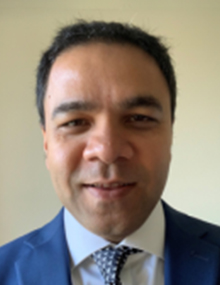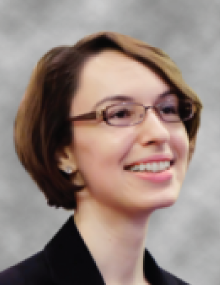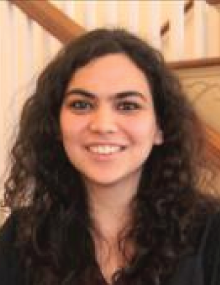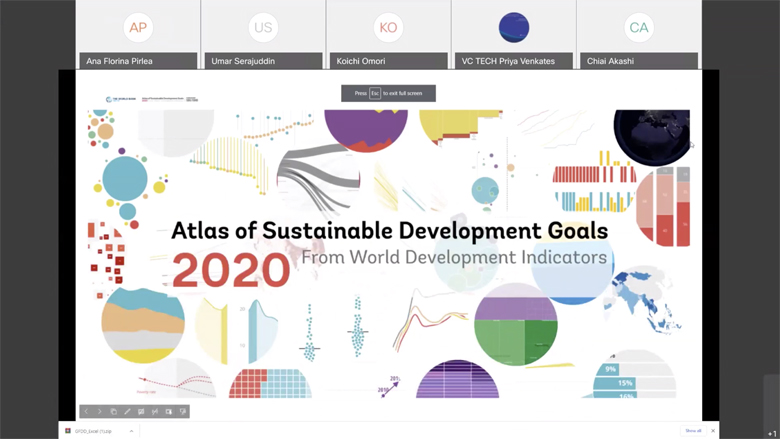On November 16, 2020, the World Bank published the 2020 Atlas of Sustainable Development Goals. This year’s Atlas is a web publication that guides readers through the Sustainable Development Goals (SDGs) using interactive storytelling and innovative data visualizations.
The SDGs seek to guide global action to address many of the world’s greatest challenges such as eradicating poverty, eliminating hunger, expanding access to education, achieving gender equality, and addressing the climate crisis. The Atlas aims to expand understanding of key SDG indicators and trends, which is important for measuring progress and directing action. The 2020 edition seeks new and creative ways to expand understanding of each of the 17 goals. The Atlas relies on insights and expertise from subject specialists, data scientists, and statisticians at the World Bank, as well as a talented team of data visualization designers. This Atlas would not be possible without the Bank's ongoing work with partner countries and UN agencies in monitoring the SDGs and improving measurement.
At this online seminar, Umar Serajuddin, Manager, Development Data Group, World Bank, Florina Pirlea, Statistician and Divyanshi Wadhwa, Junior Data Scientist, World Bank’s Development Data Group, presented the main features of the 2020 Atlas.
Date/time
08am-9am, Friday February 12, 2021 (Japan Standard Time)
Speakers
 Manager, Development Data Group, World Bank FUmar Serajuddin is a Manager in the World Bank’s Development Data Group (Indicators and Data Services Unit). He leads the Bank’s Open Data initiative and oversees the management of the World Development Indicators. He manages the teams that publish some of World Bank’s most prominent global public goods including the global poverty numbers (PovcalNet), the World Integrated Trade Solutions (WITS), the Microdata Library, and Open Data Catalogue (Development Data Hub). He also coordinates the Bank’s Sustainable Development Goals (SDG) monitoring initiatives, and most recently the production of the 2020 SDG Atlas. Umar has worked as a poverty economist for the Middle East and North Africa and the South Asia regions of the World Bank. During that time, he led the World Bank’s efforts in poverty analysis and policy development in Jordan and Yemen. He holds a PhD from the University of Texas at Austin and has published work in the fields of poverty, inequality, and social protection. |
 Statistician, Development Data Group, World Bank Florina Pirlea is a Statistician with the Development Data Group of the World Bank. Her areas of interest include data quality and dissemination, private sector development, the environment, and public policy. She holds an MA in International Economics from Johns Hopkins University and a BA in Economics and Psychology from Bryn Mawr College. |
 Junior Data Scientist, Development Data Group, World Bank Divyanshi is a Junior Data Scientist with the Development Data Group at the World Bank and works on the World Development Indicators database. Prior to joining the Bank, Divyanshi worked as a Research Assistant at an international development think tank, Center for Global Development (CGD) in Washington DC. During her time at CGD, she focused her research on private sector development and illicit financial flows and helped launch a data visualization venture. An Indian national, Divyanshi holds a BA in Political Science from the University of Delhi, India and a Master’s in Public Policy from Georgetown University. |
Presentation materials: Atlas of Sustainable Development Goals 2020: From World Bank Development Indicators (PDF)
